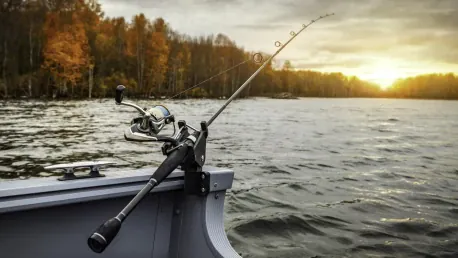Amidst the serene backdrop of American waters, the impact of recreational fishing has surged with an economic clout exceeding $230.5 billion annually, driving significance within the nation’s financial tapestry. The new report by the American Sportfishing Association (ASA) draws from comprehensive data presented by the U.S. Fish & Wildlife Service’s (USFWS) latest National Survey of Fishing, Hunting, and Wildlife-Associated Recreation. Notably, the angling community has swelled to nearly 40 million participants, with over 3.7 million anglers casting their lines within the Northeastern and Mid-Atlantic region—territories prominently covered by The Fisherman Magazine.
Maine, New Hampshire, Vermont, Massachusetts, Rhode Island, Connecticut, New York, New Jersey, Pennsylvania, Delaware, and Maryland collectively host a thriving community of fishers, contributing substantially to the local and national economy. The significance of this expansive contingent extends beyond the simple joy of fishing, embedding itself within the broader economic framework. Recreational fishing now supports over 1.1 million jobs across the country and funnels nearly $70 billion into salaries and wages—a clear indication of its vital role. This economically vibrant sector brings resilience to both rural and coastal communities, enriching lives, and sustaining livelihoods.
Economic Contributions and Job Support
Recreational fishing emerges as a formidable economic engine, with spending on equipment, licenses, outings, and ancillary expenses nearing $100 billion. The financial backbone provided by this expenditure invigorates numerous industries and businesses intertwined with the angling lifestyle. ASA President and CEO, Glenn Hughes, emphasizes that such substantial spending underscores the industry’s transformative power on the national economy, enabling a ripple effect that sustains diverse commercial enterprises. From bait shops to boat manufacturers, the fishing industry’s footprint is widespread, reinforcing its role as a critical economic cornerstone.
Beyond the profound direct financial implications, recreational fishing fosters essential conservation efforts, significantly contributing through federal excise taxes imposed on fishing tackle and motorboat fuel. License sales and charitable donations play a pivotal role, channeling around $2 billion annually towards enhancing angler and boater access, fisheries conservation, and habitat restoration. Consequently, the ecological stewardship facilitated by anglers ensures the sustainability of the resources on which their recreation depends, synergizing economic gain with environmental responsibility. The comprehensive economic impact figures updated in the most recent report further dissect contributions at state and Congressional district levels, painting a granular picture of recreational fishing’s paramount significance.
Policy Implications and Conservation Efforts
The multifaceted contributions of recreational fishing underscore the importance of this sector in shaping fisheries management policies. Recognizing the substantial economic input and broad participatory base, policymakers are urged to consider the implications of recreational fishing within legislative frameworks. Integrating angler perspectives and economic data into fisheries management is essential for crafting balanced approaches that ensure the continued prosperity of fishing communities while safeguarding fish populations. Strategic investments in access and habitat conservation further catalyze long-term benefits, reinforcing angling as a sustainable economic pillar.
The robust participation trends highlighted in the report affirm the increasing zest for recreational fishing, a pastime reflecting deep-rooted cultural affinities and community bonding. As anglers continue to expand in numbers, the prioritization of sustainable practices becomes even more critical. The sector’s stakeholders, including anglers, policymakers, and conservationists, must collaboratively navigate the complex interplay between economic stimulation and ecological preservation. Advances in policy, supported by the ASA’s ongoing advocacy, point towards a future where the sport remains accessible, balanced, and perpetually beneficial.
Empowering Local Economies
Amidst the tranquil settings of American waters, recreational fishing’s economic impact has skyrocketed, surpassing $230.5 billion annually, according to the American Sportfishing Association’s (ASA) latest report. This data, drawn from the U.S. Fish & Wildlife Service’s (USFWS) National Survey of Fishing, Hunting, and Wildlife-Associated Recreation, highlights the sport’s significance in the U.S. economy. The number of anglers has reached nearly 40 million, with over 3.7 million fishing in the Northeastern and Mid-Atlantic regions, areas prominently featured by The Fisherman Magazine.
States like Maine, New Hampshire, Vermont, Massachusetts, Rhode Island, Connecticut, New York, New Jersey, Pennsylvania, Delaware, and Maryland boast a robust community of anglers. Their contributions are vital to both local and national economies. Beyond the joy of fishing, the sport supports over 1.1 million jobs and generates nearly $70 billion in salaries and wages. This highlights recreational fishing’s crucial role in providing resilience and enrichment to rural and coastal communities, sustaining numerous livelihoods.









